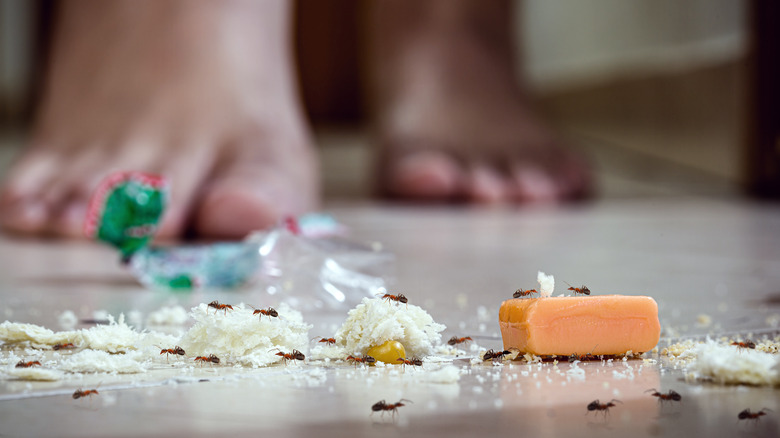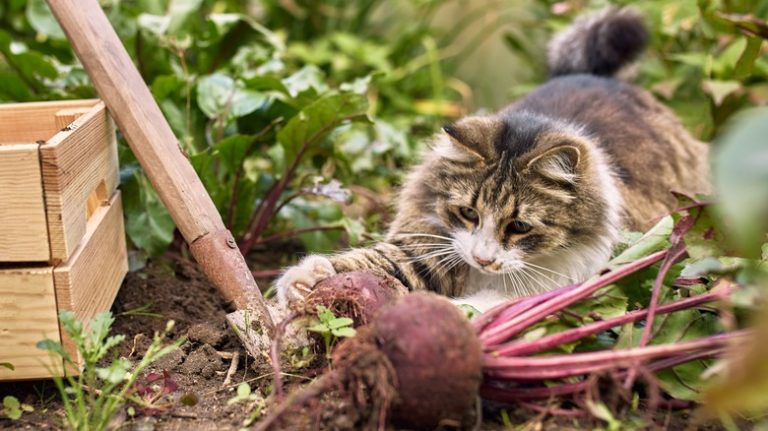Ants serve many vital functions in the environment. They pollinate plants, redistribute seeds, aerate the soil, and clear away decaying debris, dead insects, and small mammals. But this isn’t much of a comfort when you find them all through your cereal, taking the sugary treats back to their nest, or harvesting honeydew from the aphids they’re farming on your mugwort.
Finding ways to keep ants out of the house or garden is sometimes a necessity, and one odd repellent proposed by scientists and natural-living enthusiasts alike is cucumber. The idea here is that ants hate the supposed bitter taste, fungus-killing properties, or unattractive smell of cucumber. Laying slices or peelings (skin only) from the vegetable near ant trail entrances deters ants by compelling them to turn around and return from whence they came.
So, does it work? As with most natural remedies, the honest answer is … complicated. Some research suggests certain compounds in cucumbers, like trans-2-nonenal and cucurbitacin, are ant enemies; conversely, experts and experiments indicate the idea has more myth than merit.
The for and against of cucumber ant repellant
Researchers from Brawijaya University experimented with different concentrations of cucumber-based fire ant repellant. They found that a concentration of 65% cucumber extract warded off the ants for the first hour of application. A 2024 study published in the International Journal of Bioassays pointed to cucumber-mint extract at 100% concentration as a promising natural ant-repellant.
What about those aforementioned compounds: trans-2-nonenal and cucurbitacin? The former (found in cucumber and also carrots) is a proven insecticide and insect repellent and is even used in commercial ant foams. Wild cucumbers, and to a lesser extent their domesticated cousins, contain cucurbitacin, a bitter chemical that discourages insects and birds from eating them.
But any dissuading taste — and, relatedly, smell — effects are likely to be weak and short-lasting, according to a 2024 National Taiwan University study published in the journal Sociobiology. Popular YouTuber AntsCanada did an independent investigation of various natural ant-repellent remedies commonly found online, chopped cucumber among them, and found only cinnamon and diatomaceous earth (a powder made from the fossilized remains of ancient sea creatures) to be effective. Also on YouTube is a short video by Vitally Zilber showing ants chowing down on a cucumber slice, clearly not deterred by its taste or smell.
Turn scientist and try it for yourself

Still, some experts sit firmly on the fence about cucumber’s efficacy as an ant deterrent. Writing for Orkin, entomologist and Rollins Technical Services Director Dr. Ron Harrison warns that while cucumber may work, blocking all entrance points to your home with a mini cucumber fort is easier said than done. Worker ants (sometimes called “scouts”) are notoriously determined and will likely find another way inside if there’s food to be had.
With the jury out on this one, the only real solution for those seeking the best ways to get rid of ants is to run a few experiments in your home or garden. Some blogs like Lifehacker say to slice the cucumber thinly, place the slices on a piece of foil or a shallow plate, and leave them near the start of an ant line. Others like Bob Vila say to peel the cucumber — the skin and stem end are the most bitter — and deposit it at entry points into your home or near nest entrances. You can also juice the cucumber and mix it with water to make a spray, according to iGetRid.



